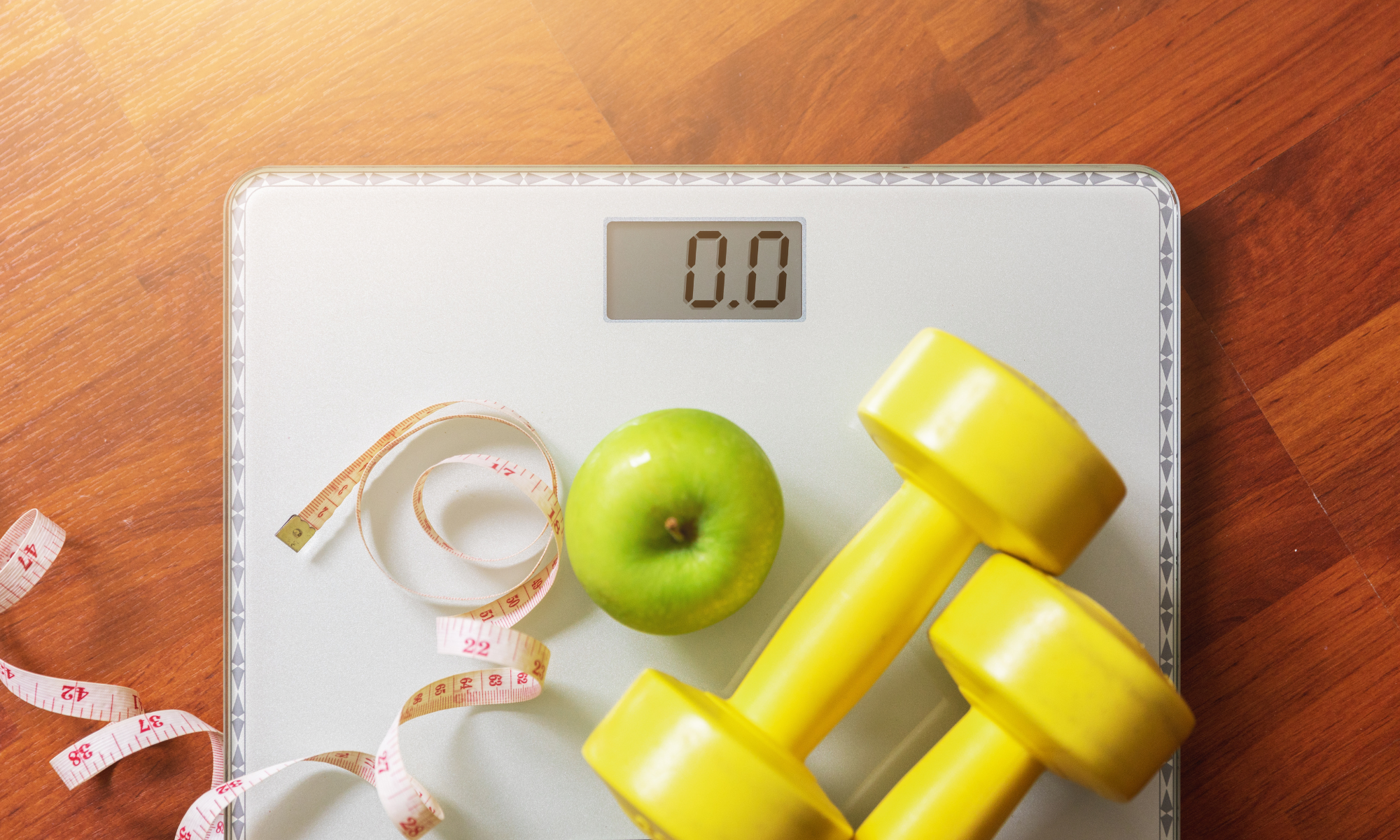25 Best Foods for Weight Loss

KEY TAKEAWAYS
- Protein, fiber, and healthy fats are essential for promoting satiety, stabilizing blood sugar, and supporting sustainable weight loss.
- Vitamins like D, C, and B-complex play a vital role in boosting metabolism, energy production, and hormonal balance.
- Foods like green tea, spicy peppers, and ginger enhance your metabolism and support efficient fat burning.
- Sustainable diets, such as the Mediterranean or DASH diets, prioritize nutrient-dense foods for long-term weight management.
- Combining balanced nutrition, regular exercise, and mindful eating habits creates the foundation for lasting weight loss success.

Understanding Weight Loss and Nutrition
Weight loss isn’t just about cutting calories or spending hours at the gym—it’s a strategic process that balances proper nutrition, lifestyle adjustments, and sustainable habits. At its foundation, effective weight loss involves creating a calorie deficit, which means burning more calories than you consume. However, the quality of the food you eat is just as important as the quantity. Nutrient-dense foods fuel your body, enhance metabolism, and support essential functions like digestion and hormone regulation, all of which are crucial for weight loss.
Equally, nutrition plays a vital role in shaping your weight loss journey. Foods rich in protein, fiber, and healthy fats not only keep you satiated but also reduce unnecessary cravings, ensuring better control over your calorie intake. On the flip side, highly processed foods and added sugars contribute to weight gain by spiking insulin levels and storing excess fat. Understanding how certain foods affect your body allows you to make smarter choices and achieve long-term success.
Weight loss should never come at the cost of overall well-being. Crash diets or extreme measures may lead to quick results but often leave the body deprived of vital nutrients. Instead, prioritizing a balanced diet, mindful eating practices, and consistent physical activity leads to healthier, more sustainable outcomes, helping you not only lose weight but also improve energy, immunity, and mental clarity.
"Weight loss isn’t just about cutting calories or spending hours at the gym—it’s a strategic process that balances proper nutrition, lifestyle adjustments, and sustainable habits."
25 Best Foods for Weight Loss
The foods you choose to incorporate into your meals play a pivotal role in achieving and maintaining weight loss. Selecting the right nutrient-rich options not only supports your calorie goals but also enhances energy levels, promotes satiety, and optimizes your metabolism. Below, you'll find a breakdown of the best foods for weight loss, segmented into essential categories that target specific nutritional needs. These foods are not only effective for shedding extra pounds but also for boosting overall health and wellness.
Protein-Rich Foods

Protein is indispensable for weight loss because it promotes satiety, reduces appetite, and helps preserve lean muscle mass during fat loss. Consuming adequate protein can also boost your metabolism, as the body burns more calories digesting protein compared to fats or carbohydrates. Below are some of the best protein-rich foods to include in your weight loss plan:
- Chicken Breast: A lean and versatile protein source that is low in calories and high in essential amino acids, making it perfect for muscle repair and growth.
- Eggs: A nutrient powerhouse containing high-quality protein, healthy fats, and essential nutrients like vitamin D and choline, which support overall health.
- Greek Yogurt: This creamy option is rich in protein and probiotics, promoting both satiety and improved gut health.
- Tofu: An ideal plant-based protein for vegetarians and vegans, tofu is also a great source of calcium and iron.
- Lentils: These are not only high in protein but also packed with fiber, keeping you full longer while aiding digestion.
Fiber-Packed Foods

Fiber is critical for weight loss because it helps control appetite, stabilizes blood sugar levels, and supports healthy digestion. Foods rich in fiber tend to be low in calories but high in volume, making them incredibly filling. Below are some fiber-packed options to prioritize:
- Oats: A slow-digesting whole grain that provides sustained energy and keeps you feeling full for hours.
- Chia Seeds: These tiny powerhouses expand when mixed with liquids, creating a gel-like consistency that promotes fullness and hydration.
- Broccoli: A nutrient-dense vegetable loaded with fiber, antioxidants, and essential vitamins, while being very low in calories.
- Black Beans: A dual powerhouse of fiber and plant-based protein, black beans are excellent for reducing hunger and improving gut health.
- Apples: A convenient and portable fruit high in fiber, apples help curb sweet cravings and improve digestion.
Healthy Fats

Healthy fats are essential for weight loss, as they help regulate hormones, improve brain function, and keep hunger at bay. Contrary to outdated diet myths, these fats can actually help your body burn fat more efficiently when consumed in moderation. Consider adding these healthy fats to your meals:
- Avocados: Full of monounsaturated fats and fiber, avocados are a nutrient-dense option that supports heart health and keeps you feeling satisfied.
- Nuts (e.g., Almonds, Walnuts): A handful of nuts provides a balance of healthy fats, protein, and fiber, making them a great snack for weight management.
- Olive Oil: Known for its heart-healthy properties, olive oil is perfect for cooking or as a dressing, enhancing metabolism while adding flavor.
- Fatty Fish (e.g., Salmon, Mackerel): These fish are rich in omega-3 fatty acids, which support fat burning and reduce inflammation.
- Seeds (e.g., Flaxseeds, Pumpkin Seeds): High in fiber and healthy fats, seeds are versatile additions to smoothies, salads, or oatmeal.
Metabolism-Boosting Foods

Some foods have natural properties that enhance your metabolism, helping your body burn calories more efficiently. Including these metabolism-boosting options in your diet can accelerate weight loss and improve energy levels:
- Green Tea: Rich in catechins and caffeine, green tea is widely recognized for its ability to enhance fat oxidation and metabolic rate.
- Spicy Peppers (e.g., Cayenne, Jalapeños): Capsaicin in peppers temporarily increases calorie burning and may help reduce appetite.
- Ginger: A thermogenic spice that aids digestion and mildly increases the body’s calorie-burning processes.
- Coffee: Known for its caffeine content, coffee can boost your metabolic rate and provide an energy lift when consumed in moderation.
- Berries (e.g., Blueberries, Strawberries): Packed with antioxidants and nutrients, berries help reduce inflammation and support fat metabolism.
Best Fruits for Weight Loss

Fruits are nature’s perfect snacks, offering sweetness and nutrients without the empty calories found in processed desserts. They are hydrating, rich in vitamins, and low in calories, making them an excellent choice for weight management. Below are some of the best fruits to include:
- Berries: Low in calories and high in fiber, berries like raspberries and blackberries are perfect for satisfying sweet cravings and promoting satiety.
- Grapefruit: Known for its fat-burning properties, grapefruit helps regulate blood sugar levels and improve metabolic health.
- Watermelon: Hydrating and low in calories, watermelon is refreshing and supports healthy digestion during warmer months.
- Pineapple: Contains bromelain, an enzyme that aids digestion, reduces bloating, and enhances nutrient absorption.
- Oranges: High in vitamin C and fiber, oranges provide a filling, low-calorie snack that supports immunity and digestion.
Each of these categories offers a unique set of benefits that can significantly contribute to your weight loss goals. With strategic meal planning, these foods can help you achieve a balanced and sustainable diet.
Incorporating Weight Loss Foods into Your Diet

Incorporating foods that promote weight loss into your daily meals can be straightforward and enjoyable with a bit of thoughtful planning. Understanding how to integrate these foods into your routine ensures that you maximize their benefits while maintaining variety and satisfaction in your diet. Below, discover how different food groups can fit seamlessly into your lifestyle.
High-Protein Additions to Meals
Protein is essential for building and maintaining lean muscle, and it keeps you feeling full longer. Start your day with eggs or Greek yogurt to provide a high-protein base that stabilizes energy levels. For lunch or dinner, include options like chicken breast or tofu paired with vegetables for a balanced, filling meal. Adding lentils to soups or salads is another simple way to boost protein intake without extra effort.
Boosting Fiber for Satiety and Digestion
Fiber-rich foods are excellent for controlling hunger and supporting digestive health. Start meals with a base of leafy greens or cruciferous vegetables like broccoli. Chia seeds can be incorporated into smoothies, oatmeal, or even water for an added fiber boost. Whole grains such as oats or quinoa are versatile staples that pair well with both sweet and savory dishes, while fruits like apples make convenient on-the-go snacks.
Leveraging Healthy Fats Wisely
Healthy fats provide long-lasting energy and help regulate hormones critical for weight management. Incorporate avocado into salads or spread it on whole-grain toast for a satisfying snack. Olive oil can serve as a flavorful dressing or cooking base, while nuts and seeds make excellent additions to yogurt or salads. For omega-3-rich options, include fatty fish like salmon or mackerel at least twice a week.
Incorporating Metabolism-Boosting Foods
Integrating metabolism-enhancing ingredients like green tea, ginger, or spicy peppers can subtly increase calorie burn. Sip on green tea throughout the day for a refreshing alternative to sugary drinks. Add ginger to stir-fries or teas for its thermogenic properties, and include spicy peppers in sauces or marinades to enhance flavor and support fat metabolism. These additions can make meals more exciting while aiding your weight loss journey.
Combining foods from different categories amplifies their benefits, making meals more nutrient-dense and satisfying. By focusing on balanced and intentional choices, you can enjoy flavorful, nourishing meals that align with your weight loss goals.
"Combining foods from different categories amplifies their benefits, making meals more nutrient-dense and satisfying."
The Role of Vitamins in Weight Loss

Vitamins play a critical role in weight loss by supporting your body’s metabolic functions, energy production, and overall health. These essential nutrients ensure your body can efficiently convert food into energy, break down fats, and maintain proper hormonal balance. Incorporating vitamin-rich foods or supplements into your diet enhances the effectiveness of your weight loss plan while promoting long-term wellness.
Best Vitamins for Weight Loss
- Vitamin D: Essential for hormone regulation, vitamin D supports fat loss and helps improve mood, which can reduce emotional eating. It is naturally found in fatty fish, egg yolks, and fortified dairy products.
- Vitamin B Complex: This group of vitamins, including B6 and B12, aids in converting food into energy and metabolizing carbohydrates and fats. Foods like eggs, lean meats, and whole grains are rich in B vitamins.
- Vitamin C: Known for its antioxidant properties, vitamin C supports fat oxidation during exercise and boosts immune health. Citrus fruits, bell peppers, and strawberries are excellent sources.
- Vitamin E: This fat-soluble vitamin helps combat oxidative stress caused by weight loss efforts and supports skin health. It’s abundant in nuts, seeds, and spinach.
- Vitamin A: Crucial for maintaining a healthy metabolism, vitamin A also supports thyroid function. Carrots, sweet potatoes, and leafy greens are rich sources.
Incorporating these vitamins ensures your body operates at its best, enabling you to achieve your weight loss goals without compromising your health. Whether through whole foods or supplements, prioritizing these nutrients can accelerate fat loss and improve your overall well-being.
Best Diets for Weight Loss

Choosing the right diet is essential for successful and sustainable weight loss. While there’s no one-size-fits-all approach, certain diets have proven effective in helping individuals shed pounds and maintain their progress. These plans prioritize nutrient-dense foods, balanced macronutrients, and manageable calorie deficits, making them easier to stick with over the long term. Below are some of the best diets for weight loss, each with unique features to suit different preferences and lifestyles:
- Mediterranean Diet: This eating plan emphasizes whole, minimally processed foods like fruits, vegetables, whole grains, lean proteins, and healthy fats such as olive oil and nuts. Known for its heart-health benefits, the Mediterranean diet also supports weight loss through balanced nutrition and reduced reliance on processed foods.
- Ketogenic (Keto) Diet: The keto diet is a low-carb, high-fat plan that encourages the body to burn fat for fuel instead of carbohydrates. By drastically reducing carbs and increasing healthy fats, many find this approach effective for quick weight loss.
- DASH Diet: Originally designed to lower blood pressure, the DASH diet focuses on fruits, vegetables, lean proteins, and low-fat dairy. With its emphasis on portion control and balanced nutrition, it is also highly effective for weight management.
- Intermittent Fasting: This method alternates between periods of eating and fasting, such as the popular 16:8 method, where eating is confined to an 8-hour window. Intermittent fasting can help control calorie intake and improve metabolism, making it a practical choice for many.
- Whole30: As a short-term, elimination-based diet, Whole30 cuts out sugar, grains, dairy, and processed foods for 30 days. This approach helps reset eating habits and identify food sensitivities while promoting weight loss.
Each of these diets offers a structured framework for weight loss while allowing room for customization based on your individual goals and preferences. Selecting a plan that aligns with your lifestyle ensures a smoother path to achieving and maintaining your weight loss objectives.
Tips for Sustainable Weight Loss
Achieving weight loss is only part of the journey; maintaining it in a healthy and sustainable way is where long-term success lies. Sustainable weight loss emphasizes gradual changes that align with your lifestyle, ensuring they become lasting habits. Rather than relying on drastic diets or extreme measures, a practical approach balances nutrition, exercise, and mindful behaviors to create results you can maintain.
Prioritize Balanced Meals
Eating balanced meals that include protein, healthy fats, and complex carbohydrates ensures your body gets the nutrients it needs while keeping hunger under control. Avoid overly restrictive diets that cut out entire food groups, as these can lead to deficiencies and unsustainable cravings. Planning your meals in advance helps you make healthier choices and reduces the temptation to opt for quick, unhealthy options.
Stay Consistent with Physical Activity
Regular physical activity is a cornerstone of sustainable weight loss. Incorporate a mix of aerobic exercises, such as walking or cycling, and strength training to build muscle and increase your metabolic rate. Find activities you enjoy to make exercise a routine rather than a chore, and aim for at least 150 minutes of moderate activity per week for the best results.
Practice Mindful Eating
Mindful eating involves paying attention to your hunger cues and savoring your meals without distractions. This approach helps prevent overeating and fosters a healthier relationship with food. Avoid eating in front of screens, and take the time to chew slowly and enjoy each bite, making your meals more satisfying and fulfilling.
Monitor Progress Without Obsessing Over Numbers
Tracking your progress through non-scale victories, such as improved energy levels or clothing fit, can be more motivating than solely focusing on the scale. Set realistic goals and celebrate small achievements to maintain positive momentum. Remember, sustainable weight loss is about overall health, not just a number.
Building sustainable habits creates a foundation for long-term success, making it easier to maintain your desired weight while supporting overall wellness. Consistency, balance, and mindfulness are key principles that will carry you through your weight loss journey and beyond.
Losing weight is a complex process that goes far beyond cutting calories—it’s about making thoughtful choices that align with your body’s needs and long-term health goals. From understanding the role of nutrition to incorporating foods that boost metabolism and promote satiety, every decision contributes to sustainable success. Whether it’s choosing the best fruits for weight loss, prioritizing vitamins that enhance energy and fat metabolism, or exploring effective diets, each step builds a foundation for lasting change.
Sustainability is key, and this comes from integrating balanced meals, regular activity, and mindful habits into your daily routine. When you prioritize nutrient-dense foods, adopt practical eating patterns, and avoid quick fixes, you empower yourself to achieve results that last. Remember, weight loss isn’t just about numbers—it’s about improving your energy, confidence, and overall well-being. With the right approach and commitment, your goals are within reach.
For those seeking a more personalized approach to digestive health and overall wellness, Roots Nutrition offers expert-curated supplement packages tailored to your unique needs. Founded by Dr. Romeo Brooks, a pioneer in holistic health, Roots Nutrition combines decades of expertise in natural healing with scientifically-backed solutions. Discover how our natural supplements can support optimal digestion, detoxification, and vitality—empowering you to achieve your health goals.
Common Questions About Best Foods for Weight Loss
What are the best foods for weight loss that also keep you full longer?The best foods for weight loss that help you feel full include protein-rich options like eggs, chicken breast, and Greek yogurt. High-fiber choices such as oats, lentils, and apples also promote satiety by slowing digestion and stabilizing blood sugar. These foods help control hunger and support consistent energy levels throughout the day.
How do vitamins impact weight loss and metabolism?
Vitamins like B-complex, D, and C play vital roles in energy production, fat metabolism, and hormone regulation. For instance, vitamin D aids in fat loss and mood stabilization, while B-complex vitamins help convert food into energy. A diet rich in nutrient-dense foods ensures your body has the vitamins needed to support weight loss.
What are some metabolism-boosting foods to add to my diet?
Metabolism-boosting foods include green tea, spicy peppers, and ginger. These items contain compounds like catechins and capsaicin, which increase calorie burn and improve fat metabolism. Including these in your meals or beverages can enhance your body’s efficiency in burning calories.
Which diets are considered the most effective for long-term weight loss?
The Mediterranean diet, DASH diet, and intermittent fasting are highly effective for long-term weight loss. These approaches emphasize nutrient-dense foods, portion control, and sustainable habits, making them practical and adaptable for various lifestyles.
What role do healthy fats play in weight loss?
Healthy fats, such as those in avocados, nuts, and fatty fish, are essential for regulating hormones and supporting brain function. These fats promote satiety and help your body absorb fat-soluble vitamins, making them a critical component of a balanced weight loss diet.





